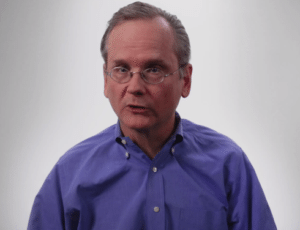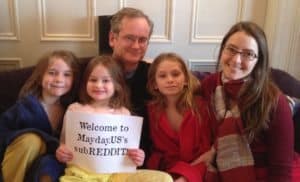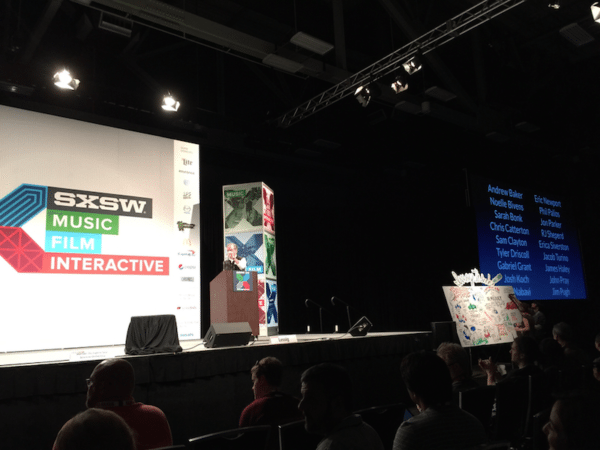Lawrence Lessig’s movement to crowdfund political change via his Mayday PAC has been quiet since the last political cycle revealed minimal success in his organization’s attempt to support candidates that back his vision of fundamental political change. The first attempt is being described as “experimental”. Now Lessig is coming up for air at SXSW and in a public statement he has revealed the PAC’s next steps.
We tried. We learned. We’re trying something new.
 According to Mayday, since this past November their leaders have been working to “craft a plan” to gather citizens to encourage Congressional representatives to “commit to fundamental reform”. Their techniques will measure results – jettisoning what does not work and “doubling down” on what does. According to Mayday the new strategy will come in 2 different stages:
According to Mayday, since this past November their leaders have been working to “craft a plan” to gather citizens to encourage Congressional representatives to “commit to fundamental reform”. Their techniques will measure results – jettisoning what does not work and “doubling down” on what does. According to Mayday the new strategy will come in 2 different stages:
- First, Mayday has launched a crowdsourced project to identify potential leaders in Congress to join the fight for fundamental reform. Mayday will turn to its army of supporters to help identify Members who are most likely to support reform and offer explanations for why. As potential leaders are nominated, Mayday will tweet the nominations and notify Members of Congress directly. It will then count the nominations, read the explanations by supporters for why various Members were nominated, and select a final list of Members who could be allies for reform.
- Second, on May 1, Mayday plans to deploy a new platform to engage citizens as lobbyists, giving them the tools they need to connect effectively with the Members of Congress that have been selected as potential leaders. As part of this stage, supporters of Mayday will be able to connect with the potentially allied Members of Congress and also with voters who live in the Members’ districts, asking them to do the same. In addition, Mayday will experiment with efforts to recruit large donors of targeted Members of Congress to make a very different kind of donor pledge: A commitment not to contribute to any candidate who doesn’t support fundamental reform.
“These are our first few steps,” Lessig said today in a statement prior to the speech. “No doubt, they will change. Indeed, we’re committed to the possibility of them changing. Because the fundamental commitment of this project is not to any particular technique. The commitment is to a process of experimentation: We will try a strategy, and learn from it. And then will either modify it or abandon it, based on what we learn. So that as we move through the list of potential allies for reform, our citizen lobbying machine will only get better. We will learn better how to convince — first voters and then funders, on our way to recruiting incumbents to reform.”
“In 2014, less than 2% of America gave anything to anyone running for Congress. But of those who did, the top 100 gave as much as the bottom 4.75 million. Less than .05% gave the maximum in even one election cycle. Less than half of that gave the equivalent of the maximum in both cycles. And 100 Americans gave 70% of the SuperPAC money spent through the cycle. We have to change this, if we’re to give ordinary Americans a reason to care about their politics again.”
 The Mayday political action committee has been promoted as a bipartisan entity with the inclusion of former advisor to President George W. Bush, Mark McKinnon. Mayday has endured criticism from both sides of the fence and the effort to engender change has, at least initial, not captured much success – yet it has raised millions of dollars. The new “super PAC” was envisioned to capture the wave of frustration of much of the electorate in the existing political environment where little is accomplished due to parochial politics and a dearth of vision.
The Mayday political action committee has been promoted as a bipartisan entity with the inclusion of former advisor to President George W. Bush, Mark McKinnon. Mayday has endured criticism from both sides of the fence and the effort to engender change has, at least initial, not captured much success – yet it has raised millions of dollars. The new “super PAC” was envisioned to capture the wave of frustration of much of the electorate in the existing political environment where little is accomplished due to parochial politics and a dearth of vision.


